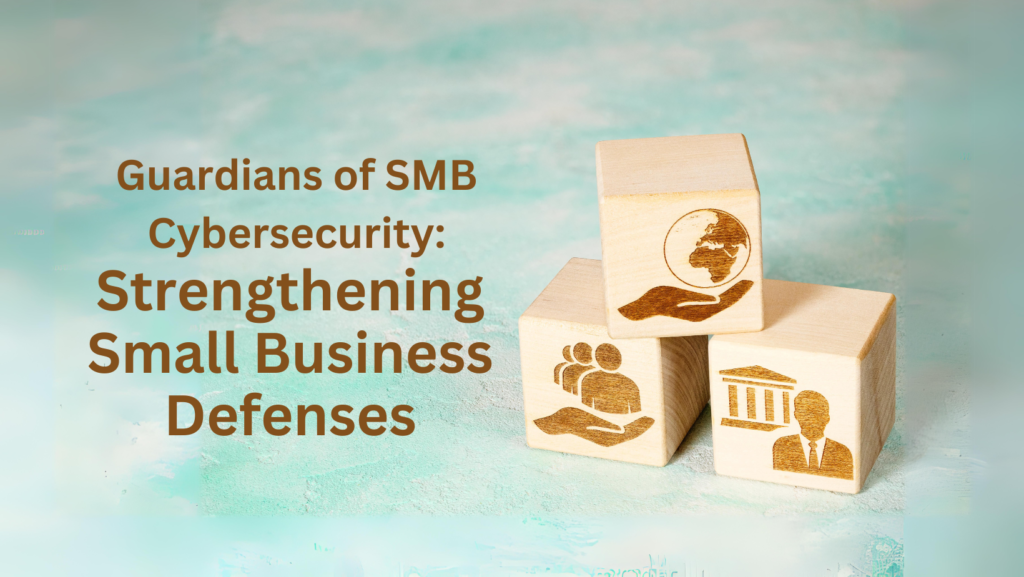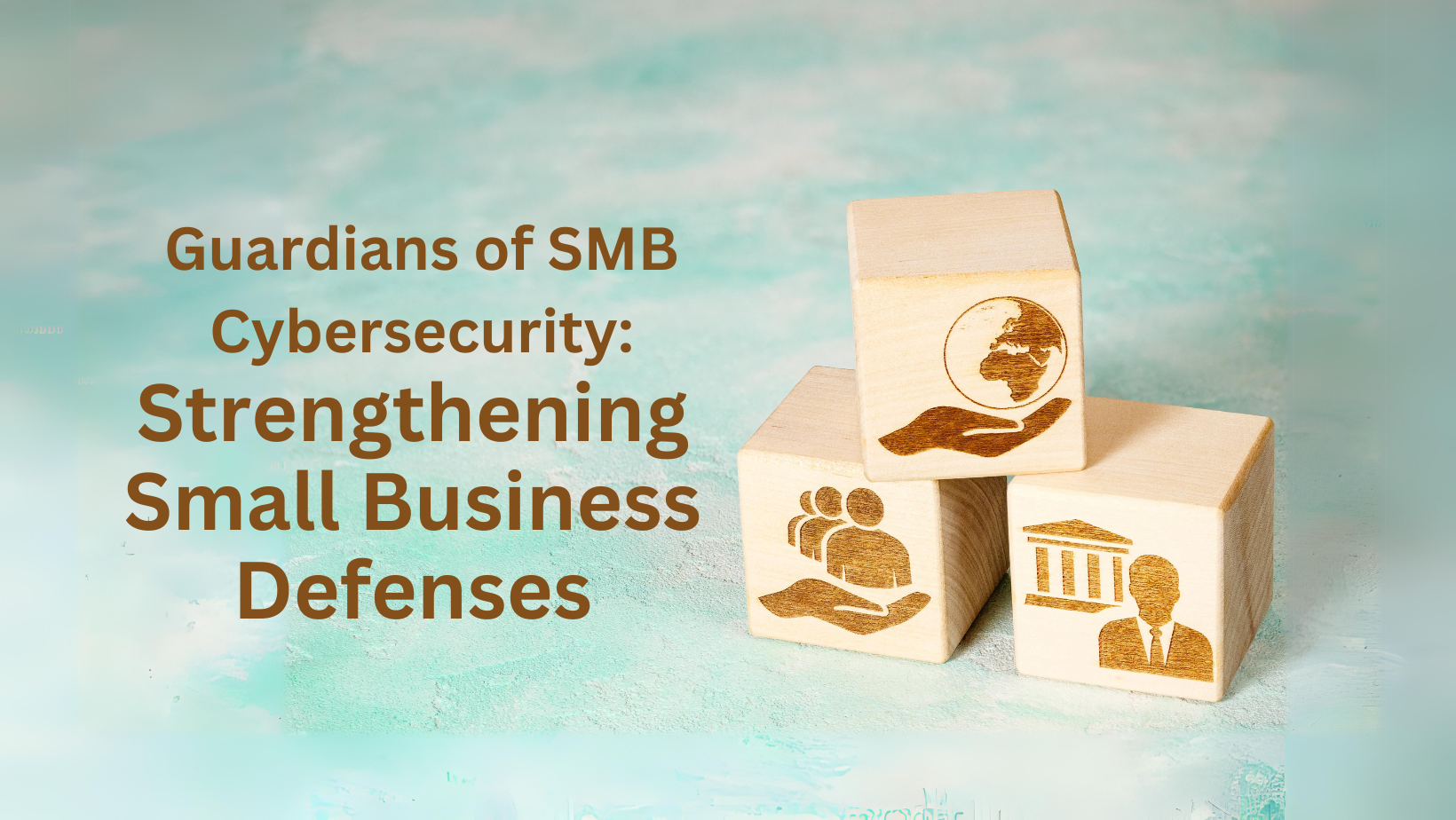Guardians of SMB Cybersecurity: Strengthening Small Business Defenses

In the dynamic realm of SMB cybersecurity, small businesses play a crucial role as defenders of their digital realms. An essential aspect of this defense lies in the establishment of robust security policies and procedures. Let’s explore why crafting and documenting cybersecurity policies tailored to the unique needs of small and medium-sized businesses (SMBs) is vital for enhancing their cybersecurity posture.
Crafting a Cybersecurity Framework Tailoring Policies to SMB Cybersecurity Requirements
For SMBs, navigating the realm of cybersecurity doesn’t necessarily mean adhering to complex compliance standards like CMMC. Instead, the focus should be on developing practical SMB cybersecurity policies and procedures that address the specific needs and challenges faced by smaller organizations. These tailored documents form the foundation of an SMB cybersecurity framework designed to protect SMBs from a wide range of cyber threats.
Documentation as a Guiding Light:
Documenting SMB cybersecurity policies and procedures serves as a guiding light for SMBs, illuminating the path towards a more secure digital environment. Whether it’s outlining protocols for data handling, access management, or incident response, clear documentation provides employees with the necessary roadmap to navigate SMB cybersecurity challenges effectively.
Promoting Cyber Resilience Empowering Employees with SMB Cybersecurity Knowledge:
Security policies and procedures empower employees by equipping them with the knowledge and tools needed to navigate the digital landscape securely. From identifying potential threats like phishing attempts to safeguarding sensitive information, these documents enable employees to actively contribute to the organization’s SMB cybersecurity resilience efforts.
Facilitating Informed Decision-Making:
Well-documented SMB cybersecurity policies streamline decision-making processes within SMBs. When employees have access to clear guidelines and protocols, they can make informed choices that align with the organization’s security goals. This proactive approach not only reduces the risk of SMB cybersecurity breaches but also fosters a culture of cybersecurity awareness and responsibility.
Evolving Threat Landscape Adapting to Emerging SMB Cybersecurity Threats:
The SMB cybersecurity landscape is constantly evolving, with new threats emerging regularly. SMBs must stay vigilant and adapt their security policies and procedures to address these evolving threats effectively. By regularly reviewing and updating their SMB cybersecurity documentation, SMBs can ensure that their defenses remain robust and resilient in the face of emerging cyber risks.
Investing in SMB Cybersecurity Education: In addition to establishing SMB cybersecurity policies and procedures, SMBs should invest in ongoing cybersecurity education and training for their employees. By providing employees with the knowledge and skills needed to recognize and respond to SMB cybersecurity threats, SMBs can further enhance their SMB cybersecurity posture and reduce the likelihood of successful attacks.
Conclusion
For SMBs, implementing SMB cybersecurity policies and procedures is akin to fortifying their digital defenses against evolving cyber threats. By tailoring these documents to the unique requirements of small businesses and focusing on practicality rather than complex compliance standards, SMBs can establish a robust SMB cybersecurity framework. This framework not only enhances SMB cyber resilience but also empowers employees to actively contribute to the organization’s SMB cybersecurity efforts. As SMBs continue to navigate the digital landscape, the strategic implementation of SMB cybersecurity policies remains essential for safeguarding their digital frontiers.
Related Articles:
Subscribe to Our Blog
ABOUT US
Provincia Government Solutions is a SBA certified Small Business cybersecurity assurance firm and a CMMC Certified Third Party Assessment Organization (C3PAO). We were the first organization to become a C3PAO in the Middle Tennessee (Nashville) area and provide a full range of services including CMMC consulting and certification assessments. Our assessment team is trained in CMMC and other government assessment disciplines and we are experienced working with organizations of all sizes. Please reach out with any cybersecurity or CMMC related inquiries. We look forward to speaking with you!
Contact Information
-
P.O. Box 1685 Spring Hill, TN 37174
United States - +1 (615) 807-2822 | info@provincia.io




















